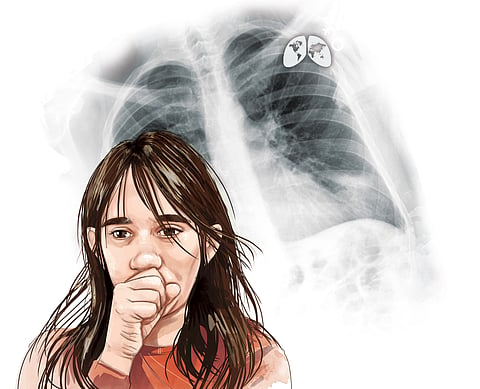

CHENNAI: Every year, the world observes November 12 as Pneumonia Day. This year, the theme was ‘Championing the Fight to Stop Pneumonia’.
This day aims to raise awareness about this serious, life-threatening lung infection, promoting prevention and treatment strategies and providing an annual platform for global efforts to combat pneumonia.
Pneumonia — caused by pathogens such as viruses, bacteria, or fungi — is highly contagious. For adults over 55, the risk of hospitalisation due to pneumonia is 13 times higher than for younger adults (ages 18 to 49).
Tragically, pneumonia remains the leading infectious cause of death among children under 5, claiming around 16 lakh lives annually. While medical advancements have improved treatment, pneumonia and other respiratory infections continue to result in significant fatalities. The impact of pneumonia goes beyond mortality. Survivors, particularly children, may face long-term health challenges, including reduced lung function, developmental delays, and recurrent respiratory infections.
Pneumonia also places a heavy strain on healthcare systems, particularly in resource-limited regions, and imposes significant economic burdens on affected families.
Observing World Pneumonia Day underscores the commitment to fighting pneumonia by uniting communities concerned with public health, air quality, and climate impact. The day helps to raise awareness and support campaigns aimed at pneumonia prevention and treatment.
It also seeks to address healthcare inequalities, highlighting that low-income countries bear the greatest burden of pneumonia-related deaths. There is a dire need for better access to essential resources such as vaccines, antibiotics, oxygen therapy, and improved nutrition for vulnerable populations.
Primary causes of pneumonia
Bacteria: Streptococcus pneumoniae is the most common cause
Viruses: Respiratory syncytial virus (RSV), influenza, and coronaviruses
Fungi: Primarily affects individuals with compromised immune systems
Risk factors
Age: Children under 5 and adults over 65 are more vulnerable
Malnutrition
Chronic illnesses: Conditions such as asthma, chronic obstructive pulmonary disease, diabetes, and heart, liver and kidney conditions
Environment: air pollution, smoking, etc.
Symptoms
High fever, chills, cough with phlegm, shortness of breath, fatigue, etc.
Transmission
Pneumonia is highly contagious, spreading through cough, sneeze, and contact with contaminated surfaces.
Treatment
In 1930, the first antibacterial agent, sulfapyridine, was developed and used to treat bacterial pneumonia, famously saving former British Prime Minister Winston Churchill. Although penicillin was discovered in 1928, it was not clinically used until 1941. Today, bacterial pneumonia is treated with antibiotics, while antiviral drugs are used for viral cases. Supportive treatments often include bronchodilators and mucolytics to aid in clearing mucus.